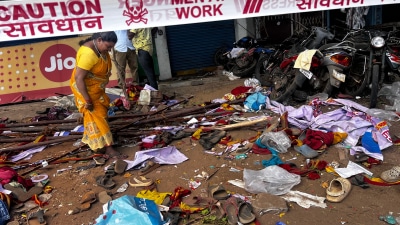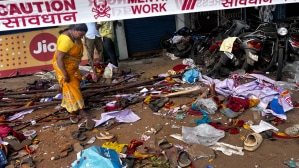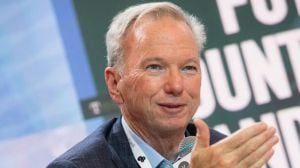Stay updated with the latest - Click here to follow us on Instagram
Former Nepal king Gyanendra shah: Country comes first, not constitution
I am not worried about the constitution, I am worried more about the state of crisis that the country faces today, said Gyanendra shah.
 Gyanendra Shah
Gyanendra ShahAS NEPAL’S constitution fails to unite various political forces and enlarge its ownership, former King Gyanendra Shah said the constitution should not come at the cost of national unity.
“The country should not prove to be loser in the process of making a constitution,” he told The Indian Express in an interview at a tea garden he owns in Eastern Nepal.
Madhesi people from southern plains in Nepal have been leading a several-month-old agitation against the promulgation of the constitution. The major demands of Madhesis, mostly of Indian-origin, include re-demarcation of the seven province model of federal structure, inclusiveness and proportionate representation of marginalised groups and ethnic minorities including the Madhesis, indigenous groups and Dalits in all the state bodies in the country.
Shah, who was dethroned exactly eight years ago, said: “It is only natural that a constitution that does not ensure fair participation of all, does not take into account inner feelings of all, deprives many from making contribution in a free and fair atmosphere, and something that has lost sight of the national context, has my disagreement.”
“I am not worried about the constitution, I am more worried about state of crisis that the country faces today. I am not available to promote some individual or partisan interest, but I can certainly be the central pillar to raise every Nepali to a higher pedestal without any partisan feeling.”
[related-post]
Asked about the mission behind his frequent travels across the country, he said: “It has absolutely no political mission. I do it in order to enhance my proximity with the people, and for greater self-standing of the context of time.”
Striking a philosophical note, he said, “Time, circumstances and fate — if you can call it — and course of events bring about ups and downs in our lives, and even Lord Rama was no exception. He turned down the suggestion to shift to Lanka, a country of gold… There could be no greater place than the native country, and for me Nepal is my janmabhoomi (birthplace) and karmabhoomi (the land where one works) both.”
“Consolidated nationalism, national integrity and security, inclusive democracy and social amity have always been the concern and priorities of the Nepali monarchy, and following the same tradition and rashtra dharma (duty to nation), I took rest from my legacy paving the way for the country’s forward movement.”
Asked on how he sees the situation now, he said, “It should be assessed by the people and they should take a considered view. The change in 2006 was based on slogan of radical changes and for loktantra (democracy). A system should do good to the nation, protect life and property of the people, ensure peace and prosperity, but why are these ideals being shattered today?”
“Why is it that the nation that always remained independent, proud and hard-working is in such a mess now?” He said the prevailing mess could be cleared only by the awakened people, and they must rise up.
“Our national need is nothing more or less than the supreme welfare of the country and our people.”
Coming back on the constitution that triggers major divide in the country, he said it should ensure that the mountain, hill and the plains and people everywhere should feel integral part of the “rashtra bhav dhara (emotional current of the nation)”.
“A constitution should respect the fundamental characters of the society that we are. But it is also time to review and fix responsibility why it could not be prepared within the prescribed time frame in the past?”
“Promulgation of a constitution should not mean the defeat of the country. It should not be promulgated at the cost of its collective conscience. All castes, ethnic groups, classes, communities should have the opportunity to be a part of the national mainstream with a guarantee of everyone’s upliftment. We all must be able to prepare that kind of statute.”
During nearly 90-minute interview, the former monarch also expressed his concern about the plight of women as well as the flight of youths on average of 500,000 a year in search of jobs abroad. “The country can not progress unless a situation for their return and jobs are ensured.”







- 01
- 02
- 03
- 04
- 05
























